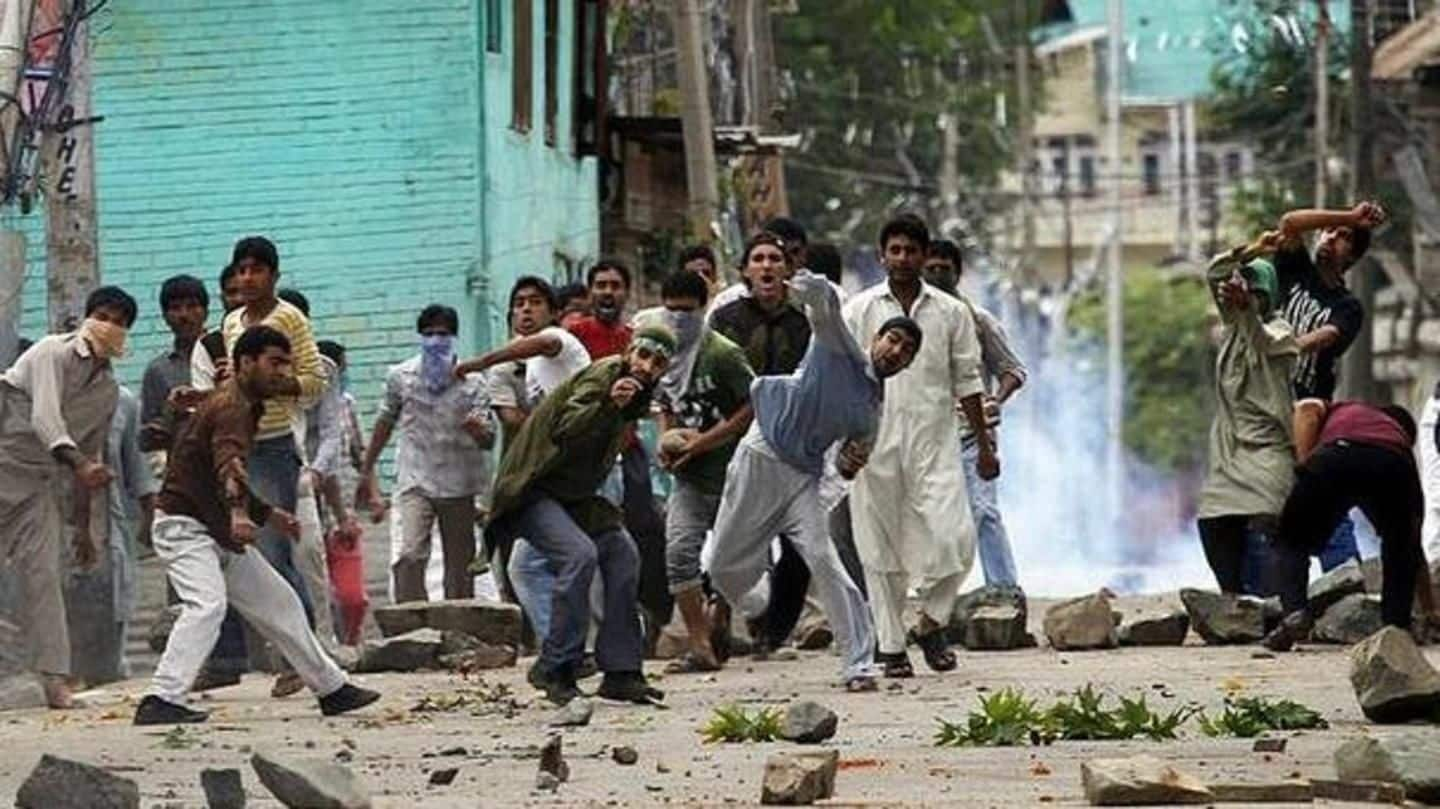
CRPF to use chilli bombs, tear gas instead of pellet-guns
What's the story
After pellet guns grevously injured several Kashmiris in 2016 post Hizbul Mujahideen commander Burhan Wani's encounter death, Indian paramilitary forces are considering to employ non-dangerous ways to manage crowds in the Valley. The Central Reserved Police Force (CRPF) is planning to give up pellet guns for "soft-nosed" tear gas shells and chilli bombs, reports Hindustan Times. Read on for more.
Successful trials
Pellet guns no more
The tear smoke munitions (TSM) have already undergone several rounds of successful trials. They have soft plastic heads which melt easily and release a gas that can help disperse unruly protesters without causing them any serious injuries, making it a desirable crowd-control weapon. Moreover, chilli shells are already effectively being used to control crisis situations in Kashmir.
Details
CRPF's multi-step mechanism for handling hostile crowds
According to CRPF director general RR Bhatnagar, they follow a multi-step process when handling hostile crowds. "The first weapon used to disperse the crowds, be it near an encounter site or anywhere else, is the TSM. The next are chilli bombs, followed by pump action guns. Preventing collateral damage is our priority. We don't want civilians getting injured during counter-insurgency operations," he told HT.
Resistance
CRPF Kashmir not too keen on giving up pellet guns
However, CRPF's Srinagar directorate isn't too thrilled about giving up pellet guns. Rapid Action Force (RAF) - India's premier mob-handling agency - conducted a training in October 2017 for the CRPF units of south and central Kashmir. In its feedback, the Srinagar directorate informed the Delhi headquarters that the new ways were ineffective in tackling Valley's "more aggressive" protesters.
Information
The added complication
Along with violent citizen protests, Kashmir has also been struggling with another complicated situation. Often at encounter sites, the crowds break through security arrangements to help trapped militants escape, further challenging the CRPF's task of effectively managing law and order without hurting civilians.